American musician Tom Shear, primarily through the vehicle of his band ASSEMBLAGE 23, has spent over a decade building a career anchored in a personal relationship with his fans.
Those self same fans appreciation for his brand of harder edged electronic music, as showcased on albums such as ‘Compass’ and ‘Bruise’, was once again demonstrated in a massively successful crowd sourcing campaign for recent side project SURVEILLANCE.
Now with a newly released remix companion to that album ‘Oceania’, Shear chatted about life as a one man band, the challenges faced in his early years and the pros and cons of crowd sourcing…
Can you give us a brief overview your early years as a musician and ASSEMBLAGE 23?
Sure. My interest in electronic music was sparked by hearing GARY NUMAN’s ‘Cars’ for the first time as a child. Something about the sounds really grabbed my attention.
 Late in elementary school, I’d mow lawns in the summer for cash and eventually saved up enough to buy my first synth, a Korg Poly-800. I eventually added a drum machine and a four-track cassette recorder to my set-up and that began my love of songwriting. The early stuff was all instrumental, as I was too shy to sing. But when I reached high school, I started recording music with vocals as well through an old guitar delay pedal. It was during this time I went to see DEPECHE MODE perform for the first time and they had a DJ spinning music in between bands that was playing industrial music. It was the first time I had ever heard it, and I’ve been hooked ever since.
Late in elementary school, I’d mow lawns in the summer for cash and eventually saved up enough to buy my first synth, a Korg Poly-800. I eventually added a drum machine and a four-track cassette recorder to my set-up and that began my love of songwriting. The early stuff was all instrumental, as I was too shy to sing. But when I reached high school, I started recording music with vocals as well through an old guitar delay pedal. It was during this time I went to see DEPECHE MODE perform for the first time and they had a DJ spinning music in between bands that was playing industrial music. It was the first time I had ever heard it, and I’ve been hooked ever since.
Hailing from Seattle in the early 90s, how difficult was it being an electronic musician which runs counter to the recognised ‘Seattle Sound’ of the time?
Actually, I’ve only lived in Seattle since 2001. I grew up on the east coast and lived in Pennsylvania, New Jersey, New Hampshire and New York. But the effect was the same. Electronic music was very out of favor in the mainstream while grunge dominated everything for a few years. Most of the purely electronic industrial music at the time was coming out of Europe, and although it existed in the US, the more coldwave / metal guitar style of industrial was most of what got attention from labels. I got rejection after rejection, or worse, totally ignored.
This was before the internet really took off, so as an American, it was tough to find out how I could even submit material to the European labels. So it was a very frustrating time. My demos were getting actual airplay on college radio stations, people I sent the demos too were really enthusiastic, but the labels just weren’t biting.
What were those first few years like? What main challenges did you face in respect of getting your work heard?
Even before getting signed, I did my best to start getting my music out there, which basically meant mailing cassettes out to any college radio station, music zine, or interested person that I could.
The first things that officially got released were compilation tracks on American labels such as 21st Circuitry and Arts Industria.
Around the beginning of 1998, I finally got a label’s ear, which was the Gashed! Records label out of Canada. At that point, getting the name out and getting exposure became a bit easier. The label handled things like getting material reviewed, advertising etc, so I could shift my attention to getting out and performing live. We were lucky enough early on to get opening slots with really popular acts such as COVENANT and HAUJOBB… that got the ball rolling.
Had you always envisioned ASSEMBLAGE 23 to be a solo project or were there plans to develop a full studio band over time?
It was nothing I really thought about. I started out as a solo act out of necessity. Where I grew up, all anyone listened to was classic rock. Most kids in my school didn’t even know who DEPECHE MODE was. So I started out working alone and just never found a reason to add anyone else to the equation. I was really eager to learn, so doing all the work was a lot of fun to me. After awhile, I was pretty self-sufficient, so I just never really had a need to bring anyone else in on the creative end. Live, obviously, is a different story.
With that in mind what challenges were there in taking ASSEMBLAGE 23 live in those early days?
I’m not going to lie, we actually were very lucky in those early days. We were booked to open for HAUJOBB… they couldn’t get into the US – suddenly, we were the headliners. VNV NATION and APOP cancelled a show when we were to open for them for – yet again, we were the headliners and had access to these big crowds. That’s not to say we didn’t play some tiny shows or faced indifferent or outright hostile audiences in the early days, but I feel like a few lucky breaks gave us a bit of an easier time than many bands.
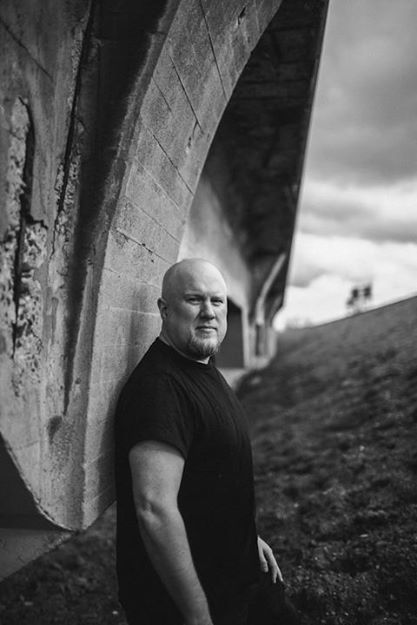 You have embraced the internet fully as a way of not only selling ASSEMBLAGE 23 product but also, with Facebook in particular, a mechanism for keeping in contact with your fans. How much of a boon and possibly problem has this been?
You have embraced the internet fully as a way of not only selling ASSEMBLAGE 23 product but also, with Facebook in particular, a mechanism for keeping in contact with your fans. How much of a boon and possibly problem has this been?
Musicians in general vastly underestimate the importance of having direct interaction with their fans. Before the internet, that wasn’t really practical. But with the ability to talk to people all around the world almost instantaneously, you suddenly have direct access to the people who are listening and (hopefully) buying your music.
I have a theory that if bands want to lessen the impact of file-sharing, they should interact regularly with their fans. My reasoning is, when fans get to see the personalities and daily lives of their favorite artists, they begin to see those artists as people just like them – not some ivory tower, unapproachable deity sleeping atop a mountain of cocaine and sports cars. Who would you rather support? The guy who takes times to answer questions and talk to you, or the one won’t talk to their fans at all, unless they pay for some retarded VIP package? The downside of this access to fans, and their access to you, is that there are definitely some unstable issues out there that can be difficult to deal with.
So the new project, SURVEILLANCE. What make this different from ASSEMBLAGE 23?
I keep several ‘ideas’ folders on my studio hard drive where I quickly sketch out musical ideas as they come to me, so I can go back and, if there is anything interesting there, develop them into songs. Obviously, not every idea I get is for an ASSEMBLAGE 23 song. Sometimes it’s something harder, sometimes it’s something more ambient or experimental. Anyway, I had a folder of material that was more EBM-focused and one day noticed I had enough of what I considered decent ideas to make an album. There are definitely elements of ASSEMBLAGE 23’s sound in SURVEILLANCE, but overall, the project is mainly influenced by the early EBM bands that got me interested in the style to begin with… FLA, FRONT 242, NITZER EBB etc. So the idea was to take those roots as inspiration, but give it a more modern polish.
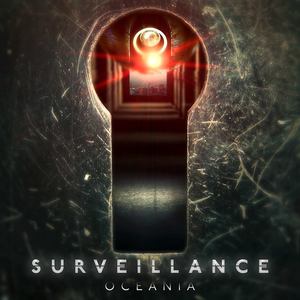 You crowd sourced to fund the SURVEILLANCE ‘Oceania’ album, how long did it take you to decide upon the rewards in the package?
You crowd sourced to fund the SURVEILLANCE ‘Oceania’ album, how long did it take you to decide upon the rewards in the package?
Most of them I came up with in the course of an evening. Before I launched my crowd-sourcing campaign, I studied others that had been successful (such as Matt Fanale’s for ‘Caustic’) and tried to look for common things among these successful campaigns.
So some ideas I got from other campaigns, some were just sort of obvious, and eventually, some were suggested by the fans and added. The most important thing is to offer fans something SPECIAL that they can’t just get off iTunes and to make a wide variety of pledge levels available. If your project is good, your fans will WANT to give you money. So give them the opportunity to do so. Have lots of reasonably-priced perks, but also offer some more expensive options if fans feel they want to support you that much more. The worst thing that can happen is no one bids on those perks.
Were you surprised at how quickly you hit target?
Astonished! I thought the amount of money I was looking to raise was do-able, but I expected it to take the full 30 days. Instead, I reached it almost within 24 hours. I think this is really another case of having a personal relationship with your fans being beneficial. Matt Fanale, who I mentioned before, is brilliant at this, and sure enough, his campaign did amazingly.
Given the negative press some crowd sourced projects have gathered, do you feel this is a valid way of funding a release? Would you do it again?
The tricky thing about crowd-sourcing is, it really has a limited shelf-life. I think it’s a great way of gauging interest in your project and getting it off the ground, but I think after that, the fans expect the project to be self-sufficient.
And if crowdfunding becomes more popular, there is also the risk that fans will just get sick of all the bands constantly asking for money. If I did use it again, I would basically use it as a glorified pre-order system for a project that was ready to ship. That way, people can just pre-order the album, or if they want something more special, they get that too. One thing I will say, however, is that a big campaign is a LOT of work to keep up with. I don’t recommend it unless you have time to put into it and are an organized person.
What is the biggest challenge you face as a one man band (and this isn’t exclusively from a music point of view)?
The workload, I guess. If I’m having a bad day or experiencing writer’s block, there’s no-one else to step in and take over. I don’t mind that, but it does mean the project lives or dies by your ability to get stuff done, and no one else’s.
You are DJing now, how does the preparation for a DJ set differ from a band gig?
When we put a set together for ASSEMBLAGE 23, it’s a very deliberate and planned thing. I generally try to make it up of the songs popular among the fans, material from the most recent album, and sometimes a surprise or two such as remixed versions, covers etc. When I DJ, I definitely rehearse in the sense of just mixing music, trying to find which tracks mix in and out of one another well etc. But I don’t plan what I’m going to play at all. I’ll generally choose a tempo I want to start my set at, and then just spontaneously choose tracks after that. It’s more fun that way.
Who are you listening to now? Any new bands you feel readers should give try?
GESAFFELSTEIN is probably the one I am grooving on the hardest at the moment; a very cool mix of old school EBM basslines, plodding techno beats and aggression.
There’s a band called BLASTROMEN I recently came across that sounds sort of like what would happen if MIND.IN.ABOX formed a KRAFTWERK tribute band.
I’m also loving the new CARBIN AIRWAYS. The band are kids… brother and sister in fact, and although I have a feeling there is a fair share of ghost writing going on, the material is great.
And if I can make a crass plug for my live band mates, ASSEMBLAGE 23 drummer Mike Jenney has just released a new album for his project ALTER DER RUINE, and it’s a stunner… utterly unlike anything they did before. Paul Seegers, my keyboard player, is also about to release an album for his project THY FEARFUL SYMMETRY which is very dream-pop sounding with lots of ambient guitar, big washy reverbs, and distant vocals. Even if these guys weren’t in my band, I’d love these albums.
What does the future hold for Tom Shear…?
I plan to attempt an entirely new level of baldness called Super Baldness.
ELECTRICITYCLUB.CO.UK gives its warmest thanks to Tom Shear
SURVEILLANCE ‘Oceania Remixed’ is available as a download album via the usual digital outlets or direct from http://surveillance23.bandcamp.com/album/oceania-remixed
ASSEMBLAGE 23 play Electronic Summer in Gothenburg on 30th August 2014 alongside AESTHETIC PERFECTION
For ASSEMBLAGE 23 and SURVEILLANCE releases and merchandise, please visit http://www.assemblage23.com/
https://www.facebook.com/pages/Official-Assemblage-23/138651156153800
Text and Interview by Ian Ferguson
Photos by Bob Libby
7th July 2014

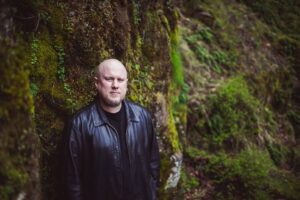
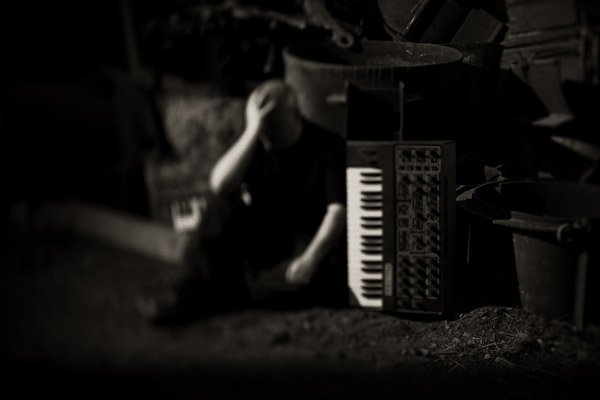
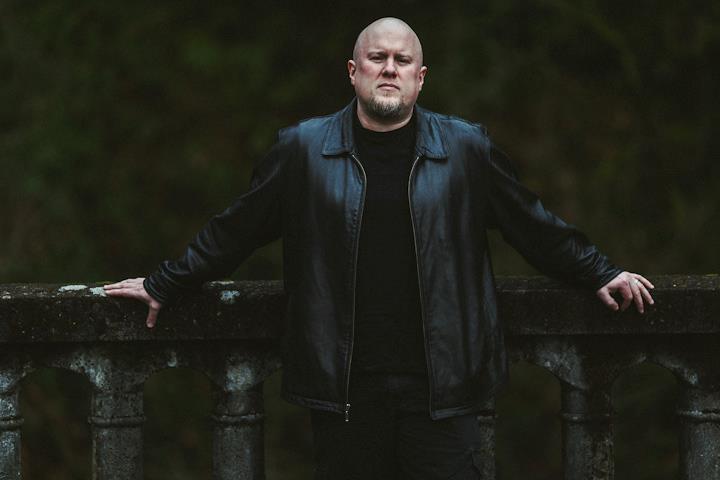
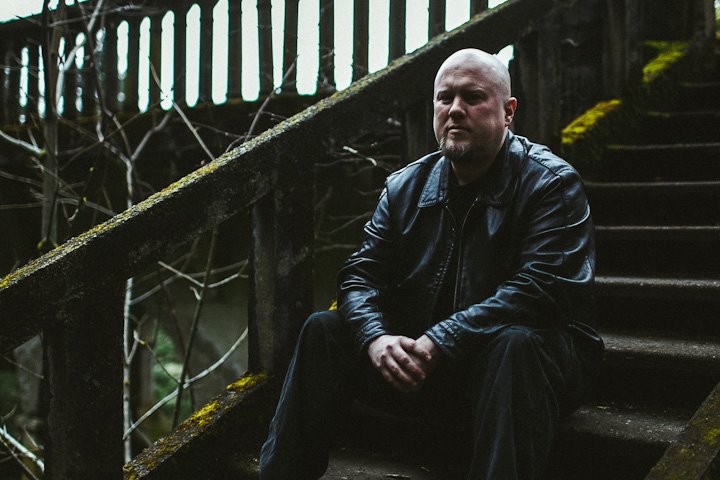
Follow Us!